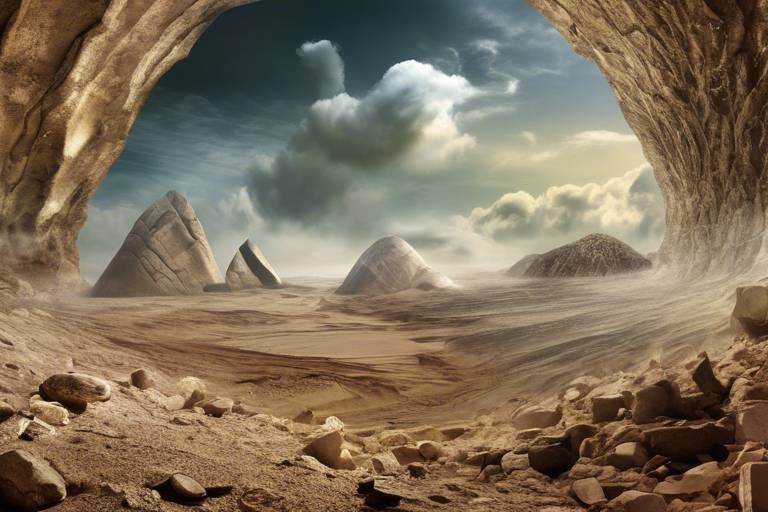Philosophy of Geology – An Introspective Look
Geology is more than just the study of rocks and minerals; it is a profound exploration of our planet's history and the intricate processes that shape it. The philosophy of geology invites us to ponder deep questions about the Earth, our existence, and the very fabric of time. By examining geological concepts, we can gain insights into not only the physical world around us but also our place within it. Imagine standing on a mountain, looking out at the vast landscape, and realizing that the rocks beneath your feet have witnessed eons of change. This perspective can be both humbling and enlightening.
At its core, the philosophy of geology challenges us to think critically about time. Geological time is not just a timeline of events; it is a reminder of the immense scales involved in Earth’s processes. When we consider that the Earth is approximately 4.5 billion years old, it becomes clear that our human experiences are but fleeting moments in the grand narrative of the planet. This realization reshapes our understanding of life and evolution, inviting us to appreciate the slow and steady processes that have led to the biodiversity we see today.
Furthermore, the philosophy of geology compels us to consider the role of observation. In a world driven by empirical evidence, the practice of geology is rooted in careful observation and study of the Earth's materials. Through fieldwork, geologists gather data that informs their understanding of geological phenomena. This hands-on experience is invaluable, as it allows scientists to connect theory with real-world applications. For instance, when a geologist studies sediment layers in a canyon, they are not just looking at rocks; they are piecing together a story of ancient environments and climatic shifts.
As we delve deeper into the philosophy of geology, we must also acknowledge the technological advances that have transformed the field. Modern tools such as GPS and remote sensing have revolutionized how geologists collect and analyze data. These technologies enable researchers to map geological features with unprecedented accuracy, leading to deeper insights into processes like plate tectonics and erosion. However, while technology enhances our understanding, it also presents challenges, particularly in the realm of field observation.
Fieldwork is not without its difficulties. Geologists often face issues related to accessibility and safety, especially in remote or hazardous locations. Moreover, the subjective nature of interpreting geological features can lead to varying conclusions among scientists. This interplay between observation and interpretation is a fundamental aspect of geological inquiry and highlights the importance of a robust theoretical framework.
In conclusion, the philosophy of geology is an introspective journey that encourages us to reflect on our relationship with the Earth. It challenges us to appreciate the vastness of geological time, the significance of observation, and the ethical considerations that arise from our interactions with the planet. As we continue to explore these themes, we gain a richer understanding of not only geology but also our place within the universe.
- What is the philosophy of geology? The philosophy of geology examines the underlying principles and concepts that shape our understanding of geological processes and the Earth’s history.
- Why is geological time important? Geological time provides perspective on the vast timescales involved in Earth’s processes, helping us understand the slow evolution of life and landscapes.
- How does fieldwork contribute to geology? Fieldwork allows geologists to gather empirical evidence and interact with geological formations, which is crucial for developing theories and understanding Earth's history.
- What role does technology play in geology? Modern technology enhances data collection and analysis in geology, allowing for more accurate mapping and deeper insights into geological phenomena.
- What ethical considerations do geologists face? Geologists must navigate ethical dilemmas related to resource extraction, environmental impact, and the balance between utilization and sustainability.

The Nature of Geological Time
When we think about time, our minds often gravitate towards the familiar ticking of clocks and the changing of seasons. However, geological time invites us to step back and embrace a much grander scale, one that stretches over billions of years. Imagine a timeline so vast that it dwarfs our human history, making it feel like a mere blink in the grand cosmic dance of Earth’s evolution. Geological time is like a cosmic tapestry woven with threads of events that shaped our planet, from the formation of its crust to the emergence of life itself.
This expansive perspective reshapes our understanding of life and evolution. For instance, while human history spans only a few thousand years, the Earth’s history extends back approximately 4.5 billion years. To put this into perspective, if we were to compress Earth’s history into a single year, modern humans would have only appeared in the last few seconds before midnight on December 31st. Such a realization not only humbles us but also highlights the incredible resilience and adaptability of life throughout the ages.
Geological time is divided into various units that reflect significant events in Earth’s history. These units range from eons and eras to periods and epochs, each marking a distinct chapter in the story of our planet. For example:
- Eons: The largest divisions of geological time, such as the Hadean and Archean eons.
- Eras: Subdivisions of eons, including the Paleozoic, Mesozoic, and Cenozoic eras.
- Periods: Further divisions within eras, like the Jurassic and Quaternary periods.
This intricate framework allows geologists to organize and interpret the vast array of geological and paleontological data. By understanding these time scales, we gain insights not only into the processes that shaped the Earth but also into the evolution of life and the environmental changes that have occurred over millions of years.
Moreover, the concept of geological time challenges our perception of change. It teaches us that while some processes occur rapidly, many geological phenomena unfold over immense periods. For instance, the formation of mountain ranges or the erosion of landscapes takes place over millions of years, often imperceptibly to the human eye. This slow, almost poetic transformation reminds us that change is a constant, albeit a gradual one, in the natural world.
In essence, geological time offers a profound lens through which we can view our planet and its history. It encourages us to appreciate the intricate and interconnected processes that have shaped the Earth, urging us to consider our place within this vast timeline. As we explore the depths of geological time, we become not just observers but participants in the ongoing story of our planet, fostering a deeper appreciation for the delicate balance of life and the environment.

The Role of Observation in Geology
Observation is the cornerstone of geological study, acting as the lens through which we explore the intricate tapestry of our planet. Imagine being a detective, piecing together clues left behind by the Earth over millions of years. Each rock, each layer of sediment, tells a story, and it’s through careful observation that geologists can decipher these narratives. Whether it’s the striking colors of a mineral or the patterns of erosion on a hillside, these visual cues provide invaluable insights into the processes that have shaped our world.
One of the most fascinating aspects of geology is how empirical evidence collected through observation can lead to groundbreaking discoveries. For instance, the study of fossils not only reveals the types of organisms that existed in the past but also provides clues about the environments they inhabited. By observing the distribution of fossils in various geological layers, scientists can reconstruct ancient ecosystems and understand the evolution of life. This interplay between observation and interpretation is what makes geology so dynamic and engaging.
Fieldwork plays a vital role in this observational process. Geologists often spend long hours in the field, examining rock formations and collecting samples. This hands-on experience is crucial because it allows scientists to interact directly with the materials they study. The tactile experience of holding a rock or feeling the texture of soil can spark ideas and hypotheses that might not emerge from a laboratory setting. For example, discovering a unique mineral deposit in the field can lead to questions about its origin and the geological processes that formed it.
Fieldwork is not just a routine task; it's an adventure filled with challenges and revelations. When geologists venture into the field, they are not merely collecting data; they are engaging in a dialogue with the Earth. This dialogue is essential for developing a comprehensive understanding of geological phenomena. The significance of fieldwork can be summarized in a few key points:
- Direct Interaction: Engaging with geological formations allows for firsthand observation, which is often more enlightening than theoretical study alone.
- Data Collection: Fieldwork enables the collection of primary data that is crucial for testing hypotheses and validating theories.
- Real-World Applications: Observations made in the field can lead to practical applications, such as identifying potential sites for resource extraction or assessing natural hazards.
In recent years, technological advancements have transformed the way geologists conduct fieldwork. Tools like GPS, remote sensing, and geographic information systems (GIS) have made it easier to collect and analyze data. These technologies enable geologists to map geological features with incredible precision and to gather data from remote locations that would have been inaccessible in the past. For instance, satellite imagery can reveal patterns of land use and geological formations that are not visible from the ground, providing a broader context for field observations.
However, field observation is not without its challenges. Geologists often face issues such as accessibility to remote locations, safety concerns, and the subjective nature of interpreting geological features. Weather conditions can also play a significant role, sometimes hindering fieldwork or altering the landscape itself. Moreover, the interpretation of geological data can vary among scientists, leading to different conclusions about the same observations. This subjectivity highlights the importance of collaboration and peer review in the field of geology.
In conclusion, observation in geology is a multifaceted process that combines empirical evidence, hands-on experience, and technological tools. It is through this intricate dance of observation and interpretation that we deepen our understanding of the Earth and its processes. As we continue to explore and learn, we are reminded of the vastness of geological time and the stories waiting to be uncovered beneath our feet.
- What is the primary method of observation in geology? Geologists primarily use fieldwork to observe geological formations and collect data directly from the Earth.
- How does technology aid in geological observation? Technologies such as GPS and remote sensing provide geologists with tools to collect and analyze data more efficiently and accurately.
- What are some challenges faced during geological fieldwork? Challenges include accessibility, safety concerns, weather conditions, and the subjective interpretation of geological features.
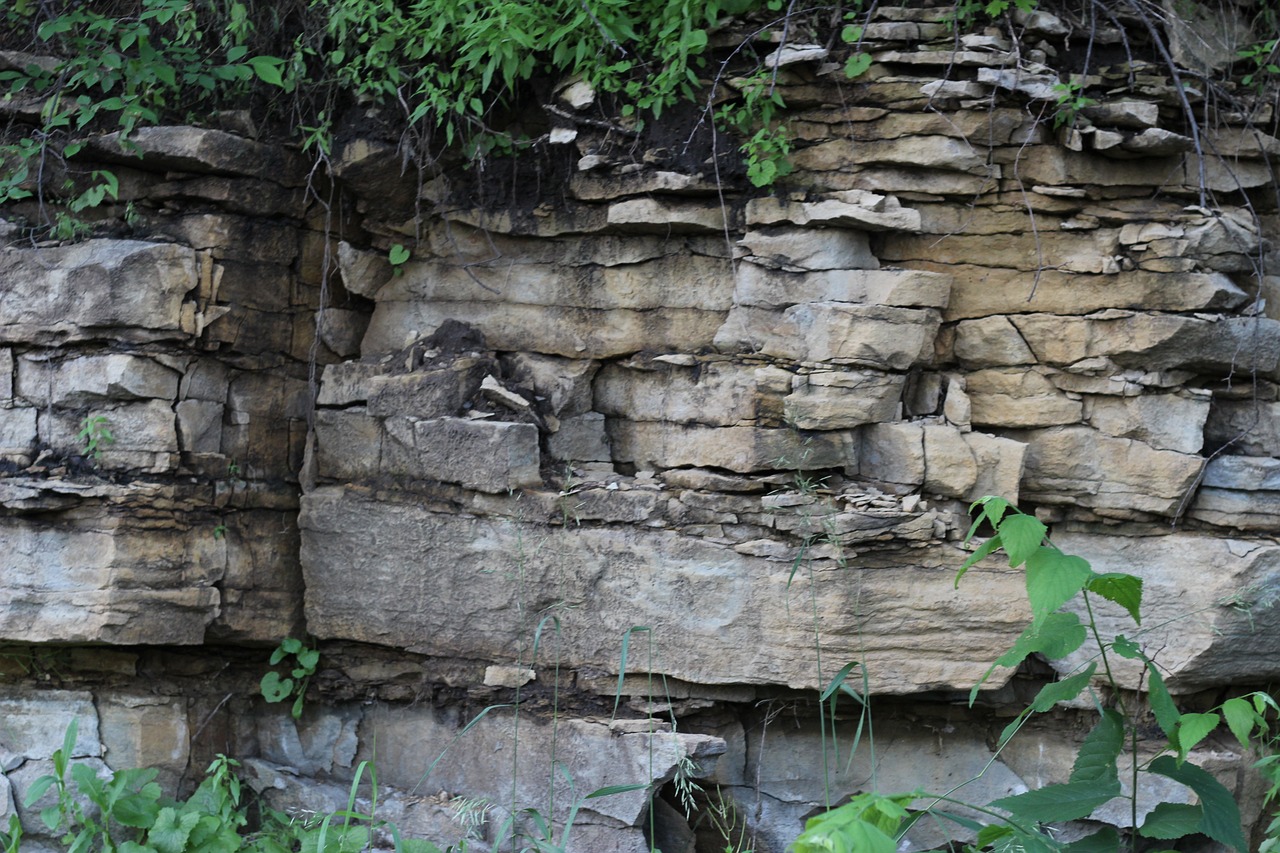
Fieldwork and Its Significance
Fieldwork is the heartbeat of geology, where theory meets reality in the most tangible way. Imagine stepping out into the great outdoors, surrounded by towering cliffs and sprawling landscapes, each rock telling a story of Earth's history. This direct interaction with geological formations allows geologists to gather invaluable data that can't be replicated in a lab. It's akin to a detective examining a crime scene; you need to be there to see the clues firsthand. The significance of fieldwork extends beyond mere observation; it shapes the very theories that define our understanding of the planet.
When geologists embark on fieldwork, they are not just collecting samples; they are engaging in a complex dialogue with nature. Every sediment layer, every fault line, and every mineral deposit provides insights into the processes that have sculpted our planet over millions of years. This hands-on experience fosters a deeper appreciation for the intricate systems at play beneath our feet. It’s a form of education that no textbook can replicate. As they sift through soil or climb rocky outcrops, geologists develop a keen intuition about Earth’s processes that enriches their theoretical knowledge.
Furthermore, fieldwork serves as a vital testing ground for hypotheses. Through observation and analysis, geologists can validate or refute existing theories, leading to the evolution of geological science. For instance, a geologist might propose a new model of tectonic plate movement based on their field observations, which could then be tested and refined through further study. This iterative process highlights the dynamic nature of geological inquiry, where fieldwork acts as both a foundation and a catalyst for scientific progress.
However, fieldwork is not without its challenges. Geologists often face harsh weather conditions, rugged terrains, and sometimes even safety hazards. But these obstacles are part of what makes fieldwork so rewarding. Overcoming these challenges fosters resilience and adaptability, qualities that are essential for any scientist. Moreover, the thrill of discovery—whether it’s unearthing a fossil or identifying a new mineral—makes every moment spent in the field worthwhile.
In summary, fieldwork is indispensable in geology. It not only enhances our understanding of Earth's materials and processes but also fosters a connection between scientists and the natural world. As we continue to explore and study our planet, the significance of fieldwork will undoubtedly remain at the forefront of geological research.
- What is geological fieldwork? Geological fieldwork involves the direct observation and study of geological formations and processes in their natural settings.
- Why is fieldwork important in geology? Fieldwork is crucial as it allows geologists to collect empirical data, validate theories, and gain insights that are not possible through laboratory work alone.
- What challenges do geologists face during fieldwork? Geologists may encounter various challenges, including adverse weather conditions, difficult terrain, and safety risks while conducting field studies.
- How does fieldwork contribute to scientific theories? Field observations can lead to the development of new hypotheses or the refinement of existing theories, making fieldwork a vital part of the scientific method.
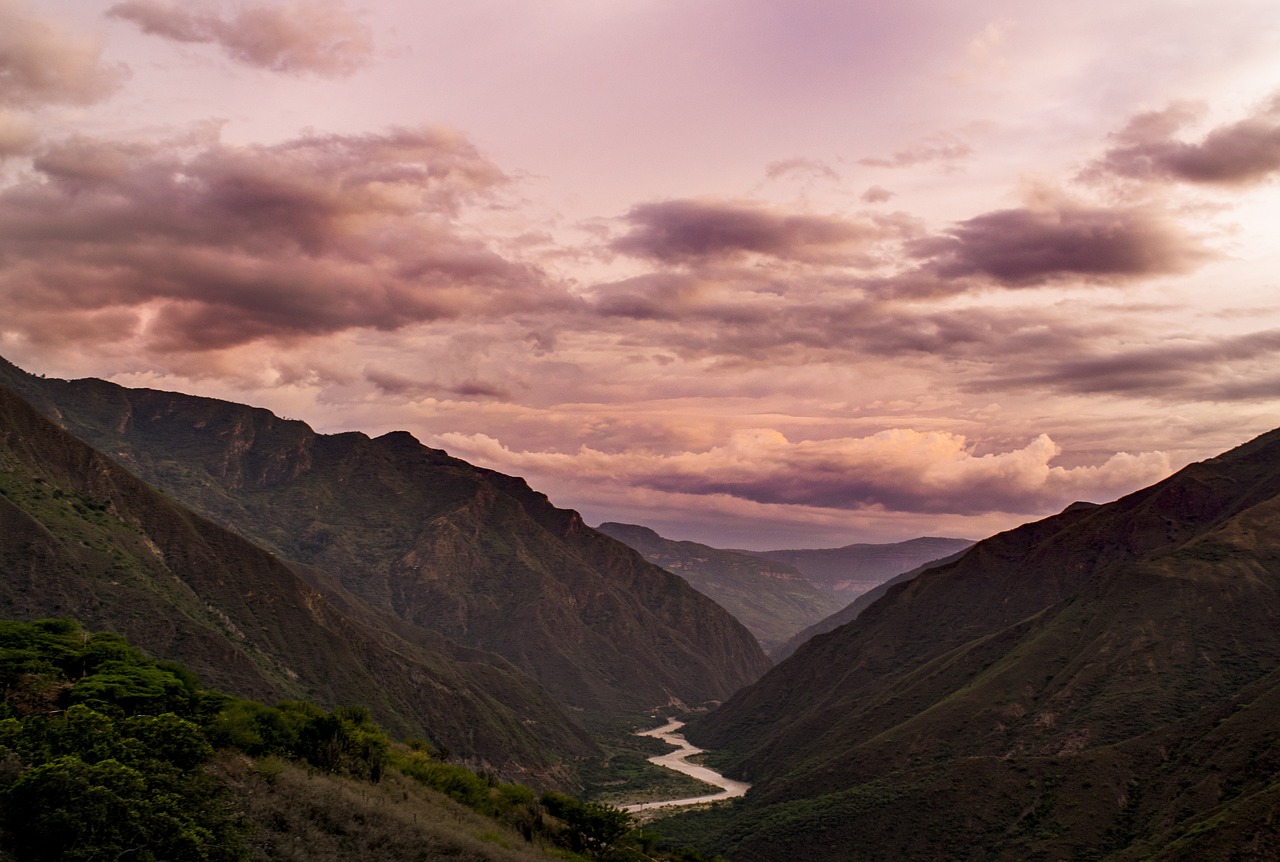
Technological Advances in Fieldwork
In the ever-evolving field of geology, technology has become a game changer, transforming the way geologists conduct fieldwork and gather data. Gone are the days when geologists relied solely on maps and compasses; today, they have an arsenal of advanced tools at their disposal that enhance precision and efficiency. For instance, Global Positioning Systems (GPS) allow geologists to pinpoint locations with incredible accuracy, ensuring that every sample and observation is accurately logged. This precision not only streamlines data collection but also facilitates the integration of findings into larger geological models.
Moreover, remote sensing technology has opened up new frontiers in geological research. By utilizing satellite imagery and aerial surveys, geologists can analyze vast areas of land without ever setting foot on them. This capability is particularly beneficial in regions that are difficult to access due to terrain or environmental conditions. The data collected through remote sensing can reveal patterns and changes in the Earth’s surface, such as erosion, land use changes, and even the movement of tectonic plates. The ability to observe these changes over time provides invaluable insights into geological processes and their impacts on the environment.
Another significant advancement is the use of Geographic Information Systems (GIS). GIS technology allows geologists to visualize, analyze, and interpret spatial data in a way that was previously unimaginable. By layering different types of geological data—such as rock types, fault lines, and mineral deposits—geologists can create comprehensive maps that illustrate complex relationships within the Earth’s crust. This capability not only aids in research but also plays a critical role in resource management and environmental planning.
Furthermore, the integration of drones into geological fieldwork has revolutionized data collection. Drones equipped with high-resolution cameras can capture detailed images of geological formations from various angles, providing a comprehensive view that ground-based observations cannot match. This technology allows for the rapid assessment of large areas, enabling geologists to gather data more efficiently and effectively than ever before.
However, while these technological advances offer exciting possibilities, they also come with their own set of challenges. For example, the reliance on technology can sometimes lead to a disconnect from traditional fieldwork skills. It’s essential for budding geologists to maintain a balance between embracing new tools and honing their observational skills. After all, the heart of geology lies in understanding the Earth through direct interaction with its materials.
In conclusion, the advancements in technology have undeniably transformed geological fieldwork, making it more efficient, accurate, and insightful. As we continue to innovate and integrate new tools into our research, the potential for discovery in the geological sciences is boundless. The future of geology is bright, and with each technological leap, we get closer to unraveling the mysteries of our planet.
- What are some common tools used in geological fieldwork? Common tools include GPS devices, rock hammers, compasses, and field notebooks.
- How has technology improved data collection in geology? Technology has introduced tools like GIS, remote sensing, and drones, allowing for more accurate and efficient data collection.
- Are there any downsides to relying on technology in geology? Yes, over-reliance on technology can lead to a decline in traditional observational skills and fieldwork experience.
- What role do drones play in geological studies? Drones are used to capture high-resolution images of geological formations, allowing for extensive area assessments without physical presence.
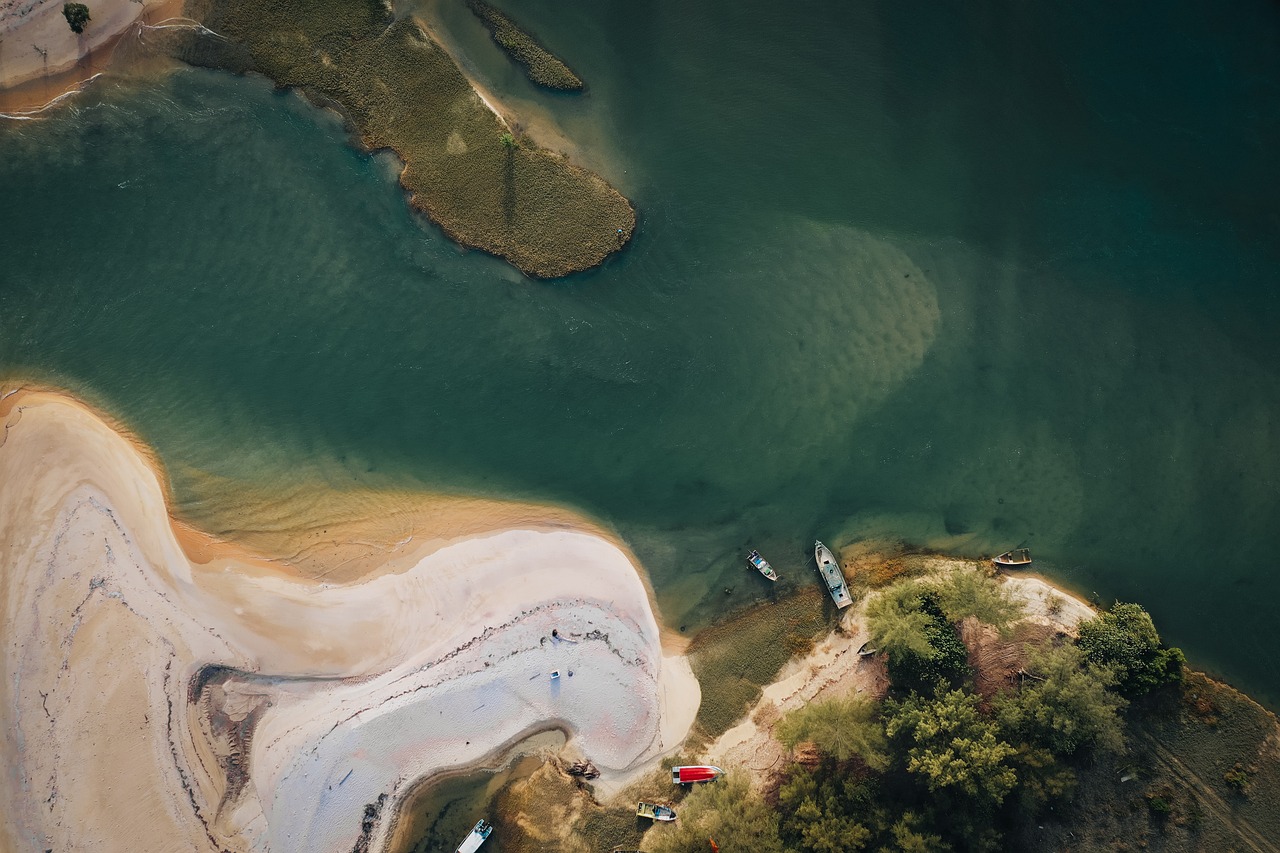
Challenges in Field Observation
Field observation in geology is an exhilarating adventure, yet it comes with its own set of challenges that can test even the most seasoned geologists. Imagine standing on the edge of a rocky cliff, trying to decipher the layers of sediment that tell the story of Earth's history, while the wind howls around you and the ground shifts beneath your feet. It's a thrilling yet daunting task! The challenges can be broadly categorized into three main areas: accessibility, safety, and the subjective nature of interpretation.
First off, accessibility can be a significant hurdle. Many geological formations are located in remote or rugged areas that require extensive travel and sometimes even specialized equipment to reach. For instance, consider the difficulties faced by geologists studying volcanic regions or deep-sea environments. These locations may be hard to access due to their geographical features or because they are situated in protected areas. The logistics of getting to these sites can be daunting, often involving long hikes or even helicopter rides, which can be both time-consuming and costly.
Next up is safety. Engaging with nature's raw forces can be exhilarating, but it also poses risks. Geologists must navigate unstable terrains, potential landslides, and unpredictable weather conditions. For example, while studying rock formations in a mountainous region, a sudden shift in weather can lead to treacherous conditions. Additionally, geologists often work alone or in small teams, which can further complicate safety measures. Proper training and equipment are essential, but even then, the unpredictable nature of fieldwork can lead to unforeseen dangers.
Finally, we come to the subjective nature of interpretation. One of the most fascinating aspects of geology is that it often involves piecing together puzzles from incomplete data. Different geologists may interpret the same rock formation in various ways based on their backgrounds, experiences, and biases. This subjectivity can lead to debates within the scientific community about the correct interpretation of geological features. For instance, a geologist who specializes in sedimentology may focus on different aspects of a rock layer than someone who specializes in structural geology. This can create a rich dialogue but also challenges the standardization of geological observations.
In summary, while field observation is an essential component of geological study, it is fraught with challenges that require careful consideration and preparation. From accessibility issues to safety concerns and the subjective nature of interpretation, geologists must remain adaptable and resourceful. These challenges not only shape their findings but also enrich the broader understanding of Earth's complex history.
- What are the main challenges geologists face during fieldwork? Geologists often encounter issues related to accessibility, safety, and the subjective interpretation of geological features.
- How do geologists ensure their safety while conducting field observations? They employ proper training, use safety equipment, and often work in teams to mitigate risks associated with fieldwork.
- Why is interpretation subjective in geology? Different geologists may have varying backgrounds and experiences, leading to different interpretations of the same geological features.
- What tools do geologists use in the field? Modern geologists utilize tools like GPS, geological hammers, and remote sensing technology to assist in their observations and data collection.
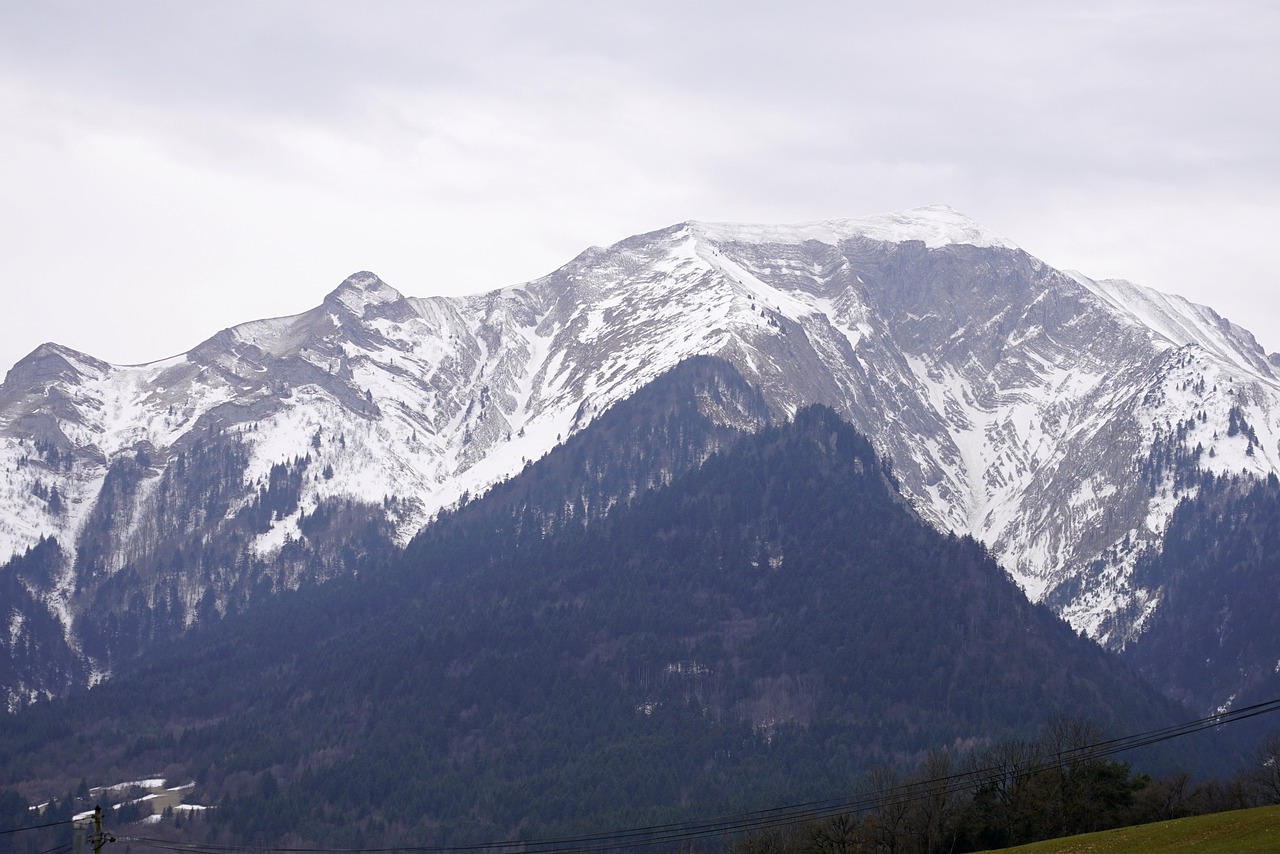
Theoretical Frameworks in Geology
Theoretical frameworks in geology serve as the backbone of geological inquiry, guiding scientists in their quest to understand the complex processes that shape our planet. These frameworks are akin to a map for a traveler; they provide direction and context, allowing geologists to interpret data and predict geological phenomena. Without these guiding principles, the vast and intricate world of geology would be overwhelming and chaotic.
One of the most prominent theoretical frameworks is the Plate Tectonics Theory, which explains the movement of the Earth's lithosphere divided into tectonic plates. This theory not only elucidates the formation of mountains, earthquakes, and volcanic activity but also offers insights into the historical evolution of continents. Imagine the Earth as a giant jigsaw puzzle, with each tectonic plate representing a piece that has shifted over millions of years to create the world we know today.
Another essential framework is the Rock Cycle, which describes the continuous transformation of rocks through processes such as weathering, erosion, and metamorphism. This cycle illustrates how igneous, sedimentary, and metamorphic rocks are interconnected, emphasizing the dynamic nature of the Earth's crust. Just like a storyteller weaving a tale, the Rock Cycle narrates the journey of materials from one form to another, highlighting the intricate relationships between different geological processes.
Additionally, the Uniformitarianism Principle posits that the processes we observe today, such as erosion and sedimentation, have been consistent throughout geological time. This principle encourages geologists to look at current processes to infer past events, much like a detective piecing together clues to solve a mystery. By understanding how natural processes operate today, geologists can make educated guesses about the Earth's past, leading to a more comprehensive understanding of its history.
However, it is essential to recognize that these theoretical frameworks are not static; they evolve as new data emerges. The interplay between theory and observation is a dynamic dance, where observations from fieldwork can lead to the refinement or even the overhaul of existing theories. For instance, advancements in technology and methodology can reveal new patterns and relationships that challenge long-held beliefs. This constant evolution keeps the field of geology vibrant and responsive to new discoveries.
To summarize, theoretical frameworks in geology are vital for interpreting the Earth's history and processes. They provide a structured approach to understanding complex geological phenomena and enable scientists to make predictions based on empirical evidence. As we continue to explore our planet, these frameworks will undoubtedly adapt, ensuring that geology remains a dynamic and ever-evolving science.
- What is the importance of theoretical frameworks in geology?
Theoretical frameworks help geologists interpret data, predict geological phenomena, and provide a structured approach to understanding the Earth's complex processes. - How does Plate Tectonics Theory impact our understanding of natural disasters?
This theory explains the movement of tectonic plates, which is crucial for understanding earthquakes, volcanic eruptions, and mountain formation. - What role does the Rock Cycle play in geology?
The Rock Cycle illustrates the continuous transformation of rocks and helps geologists understand the interconnections between different geological processes. - Can theoretical frameworks change over time?
Yes, as new data and technologies emerge, theoretical frameworks can evolve, leading to refined theories and a better understanding of geological processes.
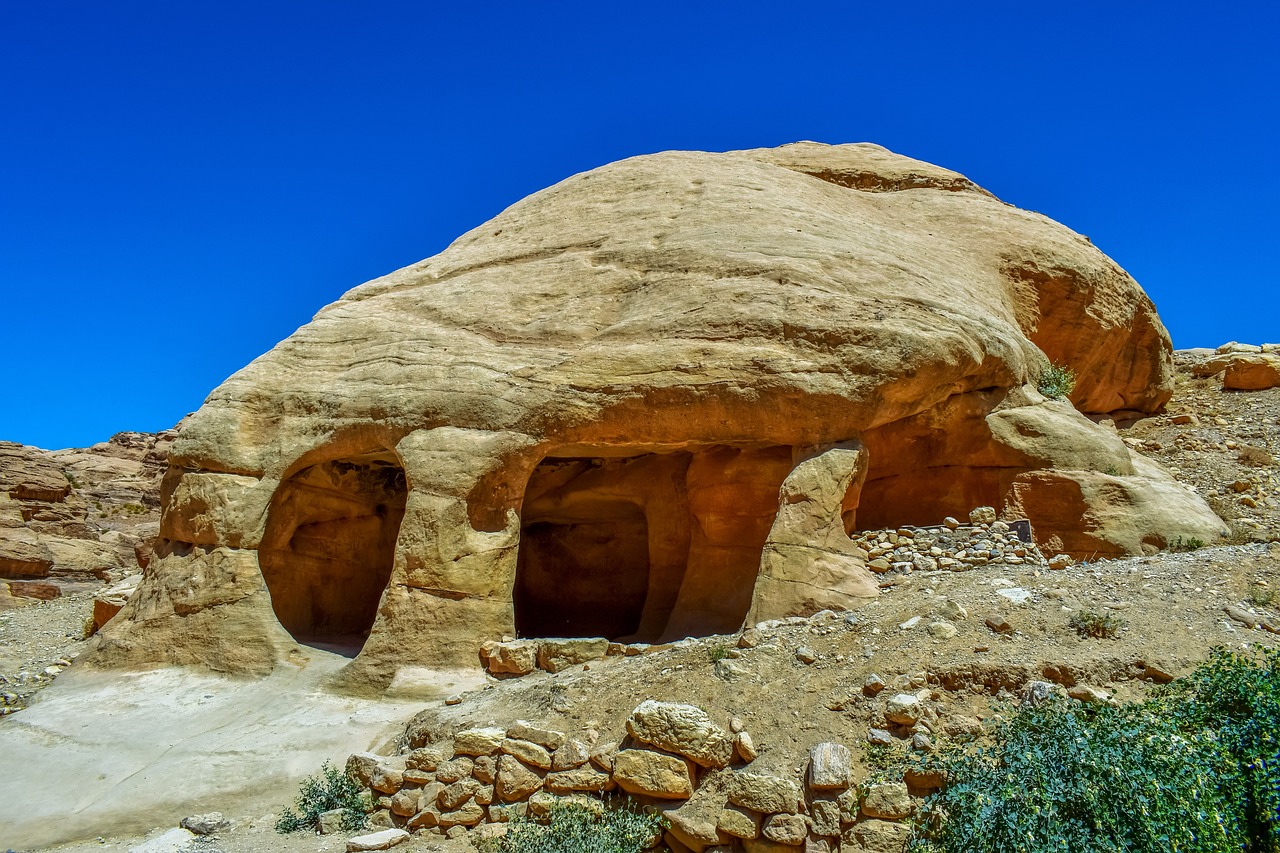
Ethics in Geological Practices
In the fascinating world of geology, ethics play a pivotal role, particularly when it comes to the delicate balance between resource extraction and environmental preservation. As geologists delve into the Earth's crust, they often face ethical dilemmas that require a thoughtful consideration of the impact their work may have on the planet and its inhabitants. The question arises: how can we responsibly harness the Earth's resources while ensuring the well-being of ecosystems and communities?
One of the primary ethical considerations in geology is the environmental impact of geological practices. The extraction of minerals, fossil fuels, and other geological resources can lead to significant alterations in landscapes, disruption of ecosystems, and even the displacement of local communities. Geologists must weigh the benefits of resource extraction against the potential harm it may cause. For instance, mining activities can lead to soil erosion, water contamination, and loss of biodiversity. Therefore, it is crucial for geologists to adopt a mindset of responsible stewardship, ensuring that their actions contribute positively to the environment.
Moreover, the ethical implications extend beyond environmental concerns to include the social dimensions of geological practices. When geologists work in developing regions, they must consider the rights and needs of local populations. This often involves engaging with communities to understand their perspectives and incorporating their voices into decision-making processes. By fostering a collaborative approach, geologists can help ensure that resource extraction benefits both the economy and the community while minimizing adverse effects.
To navigate these complex ethical landscapes, many geologists turn to established frameworks that guide their decision-making. These frameworks often emphasize the importance of sustainability and the need for a holistic approach to resource management. By integrating scientific knowledge with ethical considerations, geologists can create strategies that not only maximize resource efficiency but also promote environmental health and social equity.
In addition to environmental and social ethics, geologists must also grapple with the ethical implications of their research methodologies. For example, the use of advanced technologies in geological studies, such as remote sensing and geophysical surveys, raises questions about data privacy and the potential for misuse of information. Geologists must ensure that their research adheres to ethical standards that protect both the integrity of their work and the rights of individuals and communities affected by geological activities.
Ultimately, the ethical landscape in geology is multifaceted and requires ongoing reflection and dialogue among professionals in the field. By prioritizing ethical considerations, geologists can contribute to a sustainable future where the Earth's resources are utilized responsibly, ecosystems are protected, and local communities thrive. As we continue to explore the depths of our planet, let us remember that the choices we make today will shape the world for generations to come.
- What are the main ethical concerns in geology? The primary ethical concerns include environmental impact, social responsibility, and the integrity of research methodologies.
- How can geologists ensure responsible resource extraction? By engaging with local communities, adhering to sustainability principles, and utilizing ethical frameworks in decision-making.
- Why is environmental stewardship important in geology? It ensures that geological practices do not harm ecosystems or displace communities, promoting a balanced approach to resource management.
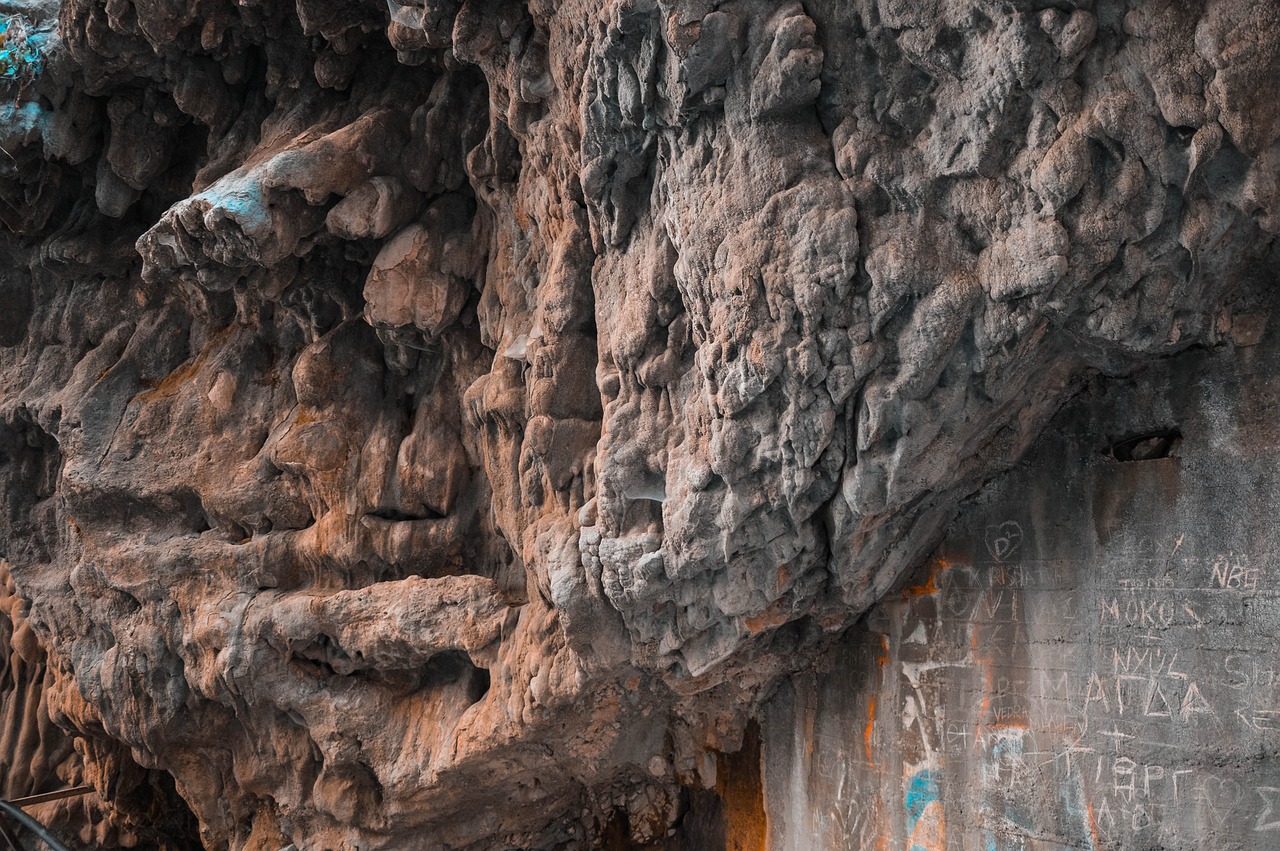
Environmental Considerations
In the realm of geology, the intersection of science and ethics can be a delicate dance, particularly when it comes to . Every geological investigation or resource extraction project carries with it a responsibility to the Earth and its ecosystems. As geologists delve into the Earth's depths, they must grapple with the profound implications of their work, weighing the benefits of resource extraction against the potential for environmental degradation. It's not just about uncovering minerals or fossil fuels; it's about understanding the ripple effects that such actions can have on the environment.
One of the most pressing issues geologists face is the impact of their activities on ecosystems. For instance, mining operations can lead to habitat destruction, soil erosion, and water pollution. The extraction of natural resources often disrupts the delicate balance of local ecosystems, leading to long-term consequences that can be difficult to reverse. As stewards of the Earth, geologists must advocate for practices that minimize harm and promote sustainability. This means not only assessing the immediate impacts of their projects but also considering the long-term effects on biodiversity and ecological health.
Moreover, the ethical dilemmas surrounding geological practices often extend beyond the immediate environment. For example, the extraction of resources in sensitive areas, such as wetlands or endangered habitats, raises significant ethical questions. Geologists must ask themselves: Is the short-term gain worth the potential long-term loss of biodiversity? How can we ensure that our work does not contribute to the degradation of these vital ecosystems?
To navigate these challenges, geologists can adopt a framework that emphasizes responsible stewardship. This includes:
- Conducting thorough environmental impact assessments
- Implementing sustainable practices in resource extraction
- Engaging with local communities to understand their concerns and needs
- Promoting restoration projects to rehabilitate affected areas
By prioritizing these practices, geologists can play a crucial role in protecting the environment while still fulfilling the demand for geological resources. The challenge lies in finding a balance between utilization and preservation, a task that requires not only scientific expertise but also a deep sense of ethical responsibility.
Ultimately, the decisions made by geologists today will shape the world for future generations. As we continue to explore and understand the Earth, we must remain vigilant in our commitment to environmental stewardship. The choices we make in our geological practices can either pave the way for a sustainable future or lead us down a path of irreversible damage. The stakes are high, and the responsibility is immense, but by embracing ethical considerations, we can ensure that our work contributes positively to the planet.
- What are the main environmental concerns in geology?
Environmental concerns include habitat destruction, soil erosion, water pollution, and the impact of resource extraction on local ecosystems. - How can geologists minimize their environmental impact?
Geologists can minimize their impact by conducting environmental impact assessments, using sustainable extraction practices, and engaging with local communities. - Why is ethical consideration important in geology?
Ethical considerations are vital to ensure that geological practices do not harm the environment or deplete resources unsustainably, protecting ecosystems for future generations.
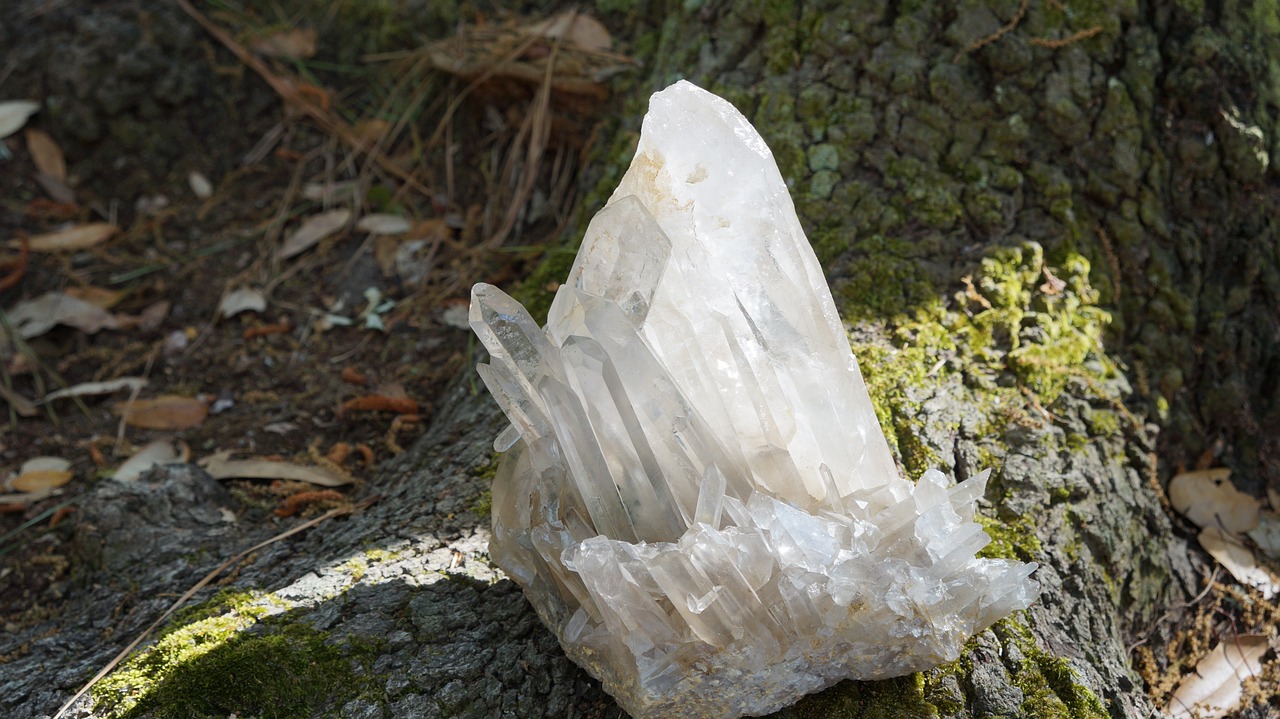
Resource Management Ethics
When we talk about in geology, we're diving into a complex web of responsibilities and moral dilemmas. Geologists, by the nature of their work, are often at the forefront of resource extraction, whether it’s minerals, fossil fuels, or water. The challenge lies in balancing the immediate benefits of these resources with the long-term impacts on our planet and its ecosystems. It’s a bit like walking a tightrope—one wrong step, and you could tip the balance between sustainability and exploitation.
At the heart of this ethical quandary is the question: How do we ensure that our resource use today does not compromise the needs of future generations? This is where the concept of sustainability comes into play. Sustainable practices in geology advocate for a responsible approach to resource extraction that minimizes environmental damage while maximizing benefits for society. For instance, consider the extraction of minerals like lithium, which is essential for batteries in electric vehicles. While it’s crucial for advancing technology and reducing carbon emissions, the process can lead to significant ecological disruption if not managed properly.
To navigate these ethical waters, geologists must adopt a framework that prioritizes both environmental stewardship and social responsibility. This includes conducting thorough environmental impact assessments (EIAs) prior to any extraction activities. An EIA helps to identify potential negative effects on the environment and local communities, allowing for informed decision-making. It’s akin to reading the fine print before signing a contract; you want to be fully aware of what you’re getting into.
Moreover, collaboration with local communities is essential. Engaging with those who will be directly affected by resource extraction can lead to more equitable outcomes. It’s not just about the geology; it’s about the people and ecosystems intertwined with these resources. For example, when planning a mining project, geologists should consult with indigenous groups to understand their land rights and cultural significance. This collaborative approach can foster trust and lead to more sustainable practices.
However, the ethical landscape is fraught with challenges. For instance, the pressure from corporations to maximize profits can sometimes overshadow ethical considerations. Geologists may find themselves in situations where they must advocate for responsible practices against the tide of economic incentives. This is where personal integrity and professional ethics come into play. Geologists must be willing to stand up for what is right, even when it’s not the most lucrative option.
In summary, resource management ethics in geology is not just a set of guidelines; it's a commitment to responsible stewardship of the Earth’s resources. It requires a delicate balance between immediate needs and long-term sustainability, demanding that geologists act not only as scientists but also as ethical stewards of our planet. The decisions made today will echo through time, shaping the world for generations to come.
- What is resource management ethics in geology?
Resource management ethics in geology refers to the moral principles that guide geologists in the extraction and management of natural resources, ensuring that practices are sustainable and responsible towards the environment and society.
- Why is sustainability important in resource extraction?
Sustainability is vital to ensure that the needs of current and future generations are met without compromising the health of ecosystems and the environment.
- How can geologists engage with local communities?
Geologists can engage with local communities by conducting consultations, understanding their concerns, and incorporating their knowledge and rights into resource management practices.
- What role do environmental impact assessments play?
Environmental impact assessments help identify potential negative effects of resource extraction on the environment and local communities, allowing for informed and responsible decision-making.
Frequently Asked Questions
- What is the significance of geological time?
Geological time is crucial because it helps us understand the vastness of Earth's history. It stretches billions of years, which reshapes our perspective on life and evolution. Think of it as a cosmic clock that shows how slowly processes like erosion and plate tectonics occur, giving us insights into the development of life and the planet itself.
- How does observation play a role in geology?
Observation is at the heart of geological study. It involves careful examination of rocks, minerals, and formations, allowing geologists to gather empirical evidence. This hands-on approach is essential for validating theories and understanding Earth's materials and processes, reinforcing the scientific method's significance in geology.
- Why is fieldwork important for geologists?
Fieldwork is vital because it provides geologists with direct experience of geological formations. It’s like being a detective, piecing together clues from the Earth itself. This practical engagement is essential for developing theories and understanding the complex history of our planet.
- What technological advances have impacted geological fieldwork?
Modern technology, including GPS and remote sensing, has transformed geological fieldwork. These tools allow for more accurate data collection and analysis, helping geologists uncover deeper insights into geological processes. Imagine having a superpower that lets you see beneath the surface of the Earth!
- What challenges do geologists face during field observation?
Despite technological advancements, field observation comes with challenges. Geologists must navigate issues like accessibility to remote locations, safety concerns, and the subjective nature of interpreting geological features. It’s a bit like trying to solve a puzzle with missing pieces!
- What are the theoretical frameworks in geology?
Theoretical frameworks serve as the backbone of geological inquiry. They help geologists interpret data and predict geological phenomena. Think of them as maps that guide researchers through the complex landscape of geological science, highlighting the interplay between theory and observation.
- Why are ethics important in geological practices?
Ethics are crucial in geology, especially regarding resource extraction and environmental impact. Geologists must consider the consequences of their work on ecosystems and communities, striving for a balance between utilizing resources and protecting the environment. It’s about being responsible stewards of our planet!
- What environmental considerations do geologists face?
Geologists often grapple with ethical dilemmas related to environmental preservation. Their practices can either harm or protect ecosystems, making it essential to approach geological work with a mindset focused on sustainability and responsible management. It’s like walking a tightrope between progress and preservation!
- How do ethical questions arise in resource management?
The extraction of geological resources raises significant ethical questions. Geologists must find a balance between resource utilization and sustainability, ensuring that their practices do not deplete resources or harm the environment. It’s a delicate dance that requires thoughtful consideration and planning!

